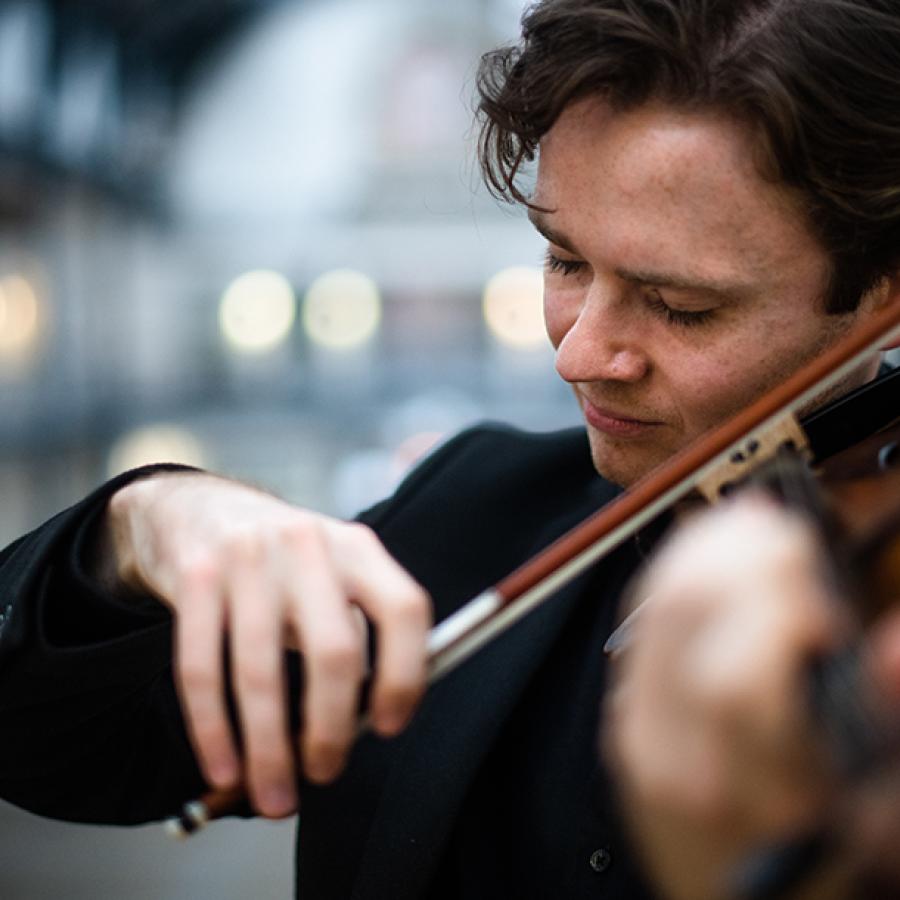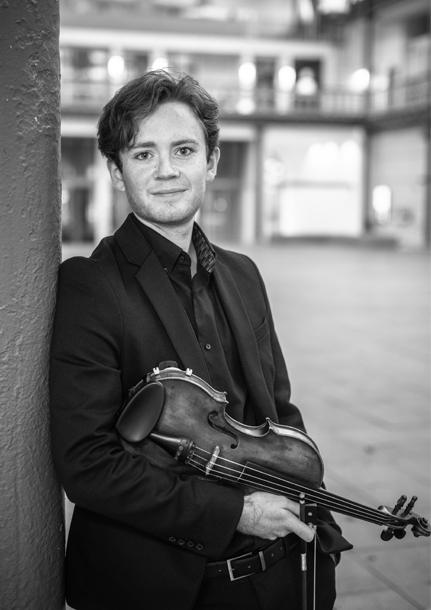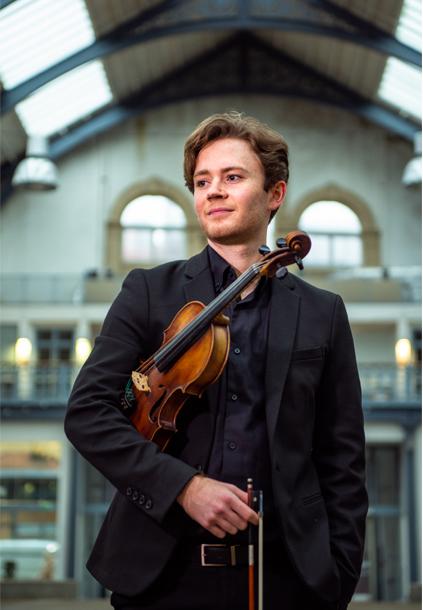Aspiring to pursue a career as a professional violinist, Andrew decided to study Music - BMus (Hons) to expand his knowledge of the field, beyond purely the creative practice, to explore composition, critical thinking and the philosophy of music and its wider place in society.
Since graduating, Andrew has begun a masters degree in Violin Performance at the Royal Northern College of Music in Manchester. Supplementing his studies by beginning his career as a freelance violinist and instrumental teacher.
Why I chose to study Music - BMus (Hons)
I chose to study at ECA to provide myself with the widest possible range of options to pursue my passion for music. Despite initially aspiring to become a professional violinist, I also knew that I wanted to expand my creative horizons through the study of composition and to develop my critical thinking abilities to be able to tackle challenging questions concerning the philosophy of music and its wider place in society. As a person who believes that a wider basis of understanding in music can always support and inform performance - not just go alongside it as something extra - I knew that ECA would be perfect for me, as it combined outstanding academic options, instrumental tuition and performance opportunities. This is alongside the fact that Edinburgh is a beautiful and inspiring city to live and study in!






